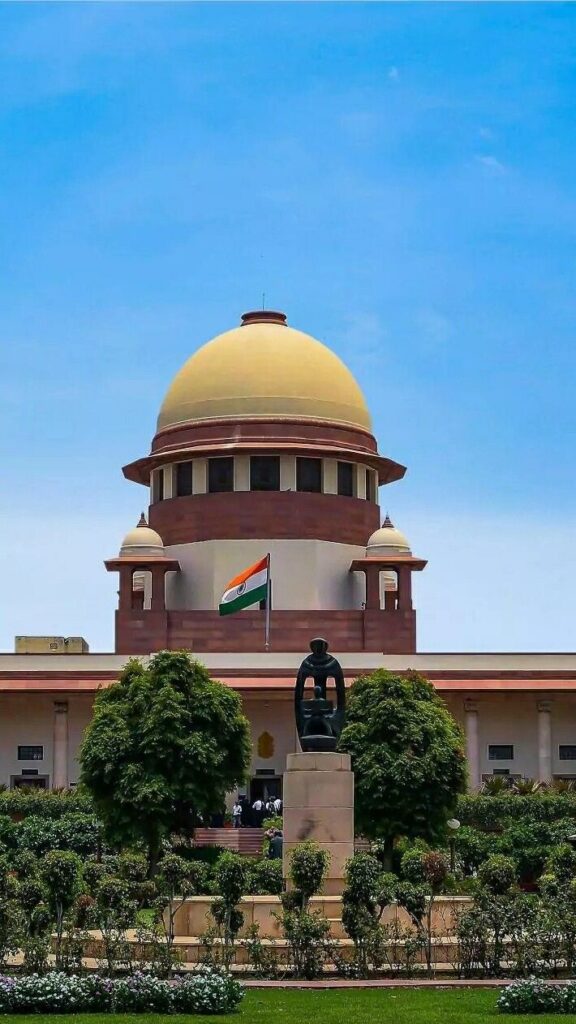Author: Saswoti Rath
Court: High Court of Delhi
Citation: CS(OS) No. 1407 of 2010
Date of Judgment: 28 January 2011
Presiding Judge: Hon’ble Mr. Justice S. Ravindra Bhat

1. FACTS OF THE CASE
The plaintiff, Tata Sons Ltd., instituted a civil suit before the Delhi High Court against Greenpeace International and Greenpeace India Society, alleging that a video game titled “Turtle vs Tata”, hosted on Greenpeace’s website, defamed the Tata Group and infringed upon its trademark and brand identity.
The impugned game was part of an environmental awareness campaign protesting the construction of the Dhamra Port in Odisha—a joint venture of Tata Steel and L&T. Greenpeace claimed that the port’s development near the ecologically sensitive coastline posed a serious threat to the nesting habitats of the endangered Olive Ridley turtles.
In the game, players controlled a turtle trying to save its eggs from bulldozers bearing the Tata logo. Tata Sons contended that the game and related campaign materials tarnished its image and were designed to vilify the company through unauthorised and misleading use of its registered trademark.
Accordingly, Tata filed for:
- A permanent injunction to restrain Greenpeace from hosting or circulating the game;
- An order for damages;
- An order directing the removal of all allegedly defamatory or disparaging content.
2. ISSUES RAISED
- Whether the portrayal of Tata’s brand and logo in the video game constituted defamation of the company and tarnished its reputation in the public domain.
- Whether such depiction amounted to infringement of trademark rights under the Trade Marks Act, 1999.
- Whether the campaign, being satirical and non-commercial in nature, fell within the ambit of freedom of speech and expression under Article 19(1)(a) of the Constitution.
- Whether Tata Sons was entitled to a permanent injunction and damages against Greenpeace
3. CONTENTIONS OF THE PARTIES
Plaintiff: Tata Sons Ltd.
- Asserted that the depiction of bulldozers with the Tata logo in the game, coupled with environmental warnings, constituted defamation and commercial disparagement.
- Argued that the use of the Tata trademark without consent amounted to infringement and unfair exploitation of its reputation.
- Contended that the campaign misled the public and damaged its image as a responsible corporate entity.
- Sought judicial intervention to prevent irreparable loss to its goodwill and to restrain Greenpeace from spreading such content.
Defendant: Greenpeace International & Greenpeace India Society
- Defended the game as a satirical and artistic expression meant to critique a matter of public interest—namely, environmental degradation.
- Submitted that the use of the Tata logo was incidental and symbolic, used to refer to the corporate entity involved in the project.
- Argued that the expression was non-commercial and aimed solely at environmental advocacy, not for profit or market advantage.
- Invoked the fundamental right to freedom of speech and expression, protected under Article 19(1)(a) of the Constitution.
4. RATIONALE OF THE COURT
Justice Ravindra Bhat, delivering the judgment, dismissed the application for interim injunction sought by Tata Sons and held in favour of Greenpeace.
The Court recognized the right to freedom of speech, especially in the realm of public interest advocacy and environmental awareness. It drew a distinction between commercial exploitation of a trademark and non-commercial criticism, especially where the content is part of public discourse.
Key findings:
- Satirical expression and parody are legitimate forms of protest and commentary, particularly in a democratic society.
- The use of Tata’s name and logo was not for commercial gain, nor was there any consumer confusion or intent to deceive.
- Trademark law cannot be used as a tool to curb dissent or criticism by NGOs or civil society groups.
- The judiciary must remain vigilant against SLAPP suits (Strategic Lawsuits Against Public Participation), which seek to intimidate activists under the guise of defamation or trademark misuse.
Accordingly, the Court refused to restrain Greenpeace from hosting the game and observed that public discourse must accommodate criticism, even if sharp or unflattering.
5. DEFECTS IN LAW
- The absence of a statutory exception for satire and parody in Indian trademark law creates legal uncertainty in digital free speech disputes.
- The judgment does not lay down a definitive test for distinguishing permissible parody from defamatory speech—leaving future cases to a facts-and-circumstances approach.
- India lacks a comprehensive framework to regulate SLAPP suits, which are often used to suppress dissent under the guise of civil liability.
- There is no specific protection for environmental or digital activism, which can be vulnerable to aggressive litigation by large corporations.
6. INFERENCE & SIGNIFICANCE
The decision in Tata Sons Ltd. v. Greenpeace International marks a critical moment in the evolution of Indian free speech jurisprudence, especially in the context of digital environmental activism. The Delhi High Court’s refusal to muzzle public critique via trademark law reaffirmed the judiciary’s commitment to upholding constitutional freedoms over corporate interests.
This case is an authoritative precedent for:
- Digital satire and parody as protected expression;
- Limitations on trademark enforcement when balanced against public interest speech;
- Judicial resistance to corporate overreach in silencing civil society.
Importantly, the judgment sends a strong signal that Indian courts will not be swayed by reputational claims, when the intent and impact of the expression are clearly in the public interest.
Tata Sons Ltd. v. Greenpeace International, CS(OS) No. 1407/2010, High Court of Delhi (India).
BIBLIOGRAPHY.
Tata Sons Ltd. v. Greenpeace Int’l, CS(OS) No. 1407/2010, High Court of Delhi (India).
The Trade Marks Act, No. 47 of 1999, 29, Acts of Parliament, 1999 (India).
Constitution of India, art. 19(1)(a).
Arpan Banerjee, Trademark Parody and Indian Law: A Case for Explicit Protection, 5 NUJS L. Rev. 227 (2012).
Shreya Singhal v. Union of India, (2015) 5 SCC 1 (India).
SLAPP Suits and Freedom of Speech in India – Legal Services India, https://www.legalservicesindia.com.
